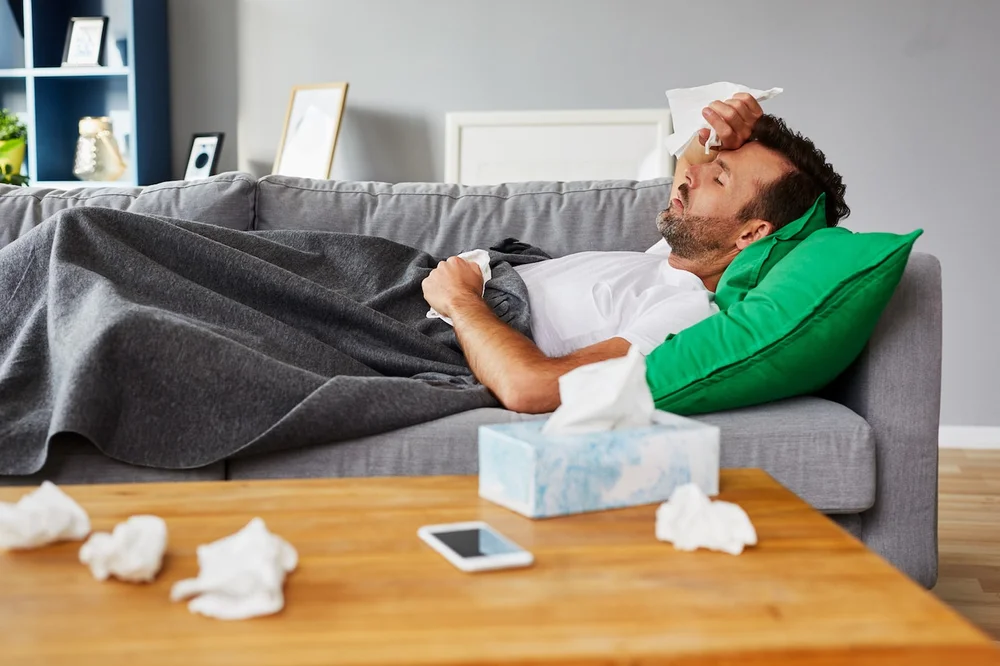Here Are 5 of the Best Ways to Prevent Colds and Flus
Medically Reviewed by Dr. Nicole Avena
Winter is here!
Unfortunately, that means it’s also cold and flu season.
As the days continue to get shorter and colder, it’s crucial to fortify yourself against the common illnesses that can leave you feeling drained and miserable. To prevent colds and flus from ruining your holidays, arm yourself with practical habits that can support your immune system not only during the winter season, but all year round!
Cold and Flu Symptoms
Colds and flus are highly contagious infections that afflict millions of people every year. They can range from mild symptoms to more severe cases that can lead to hospitalization or even death.
Common cold and flu symptoms include:
- Coughing
- Sneezing
- Congestion
- Fever
- Body aches
- Runny nose
- Sore throat
The best way to protect yourself, and those around you, from becoming ill this winter is to take preventive measures, which may include natural interventions.
Understanding the Difference Between Colds and Flus
Before diving into the importance of prevention, it’s crucial to understand the difference between colds and flus. While they share some similar symptoms (listed above), they’re caused by different viruses (tiny organisms that can’t survive on their own but need living cells to reproduce).
Colds are usually caused by rhinoviruses, which are present throughout the year, but are more prevalent during winter months. They’re highly contagious but relatively mild compared to influenza (flu) viruses.
Flu viruses mutate rapidly, making it harder for our immune systems to fight off infections. Symptoms can be more severe than a regular cold and sometimes require medical intervention (such as taking powerful, prescribed anti-viral medications to eradicate the virus).
How Do People Catch Colds and Flus?
Once released into the air or onto surfaces, these viruses can enter your body in several ways:
Inhaling Airborne Droplets
When someone with a cold or flu coughs or sneezes without covering their mouth, tiny droplets containing the virus can float into the air. If you inhale these droplets, you may catch the virus and get sick.
Touching Contaminated Surfaces
When someone with a cold or flu rubs their nose or mouth and then touches a surface (such as a doorknob, table, or phone), they can leave behind viruses. If you touch a contaminated surface and then rub your eyes or nose, you may transfer viruses into your body.
Shaking Hands
Hand-to-hand contact is another common way for viruses to spread. You may be exposed to a virus when shaking hands with someone who has a cold or flu.
Sharing Personal Items
Sharing personal items – such as cups, utensils, towels, a brush, or even lip balm – can lead to the transmission of viruses if someone who’s infected has used them.
Who’s Most at Risk of Catching Colds and Flus?
Certain factors can increase your risk of catching a cold or flu, including:
Weakened Immune System
People with weaker immune systems (such as infants, older adults, pregnant women, and people with serious illnesses) may be more susceptible to catching a cold or flu.
Close Contact with Infected Individuals
People who are in close contact with someone who has a cold or flu – such as family members, coworkers, or classmates – have a higher chance of catching the virus.
Lack of Cleanliness
Not washing your hands regularly or failing to practice good hygiene can increase your risk of getting sick.
Seasonal and Environmental Factors
Colds and flus tend to be more prevalent during the colder months when people spend more time indoors in close proximity to each other. When outdoors, exposure to cold air can dry out the nasal passages and weaken the immune system, which may make you more vulnerable to catching these viruses.
The best way to avoid the spread of colds and flus is to closely adhere to proven prevention strategies. Here are some simple steps you can take to stay healthy this winter.
5 of the Best Ways to Prevent Colds and Flus This Winter
- Practice Good Hygiene – Washing your hands with soap and warm water for at least 20 seconds can help kill many viruses on your hands. Be sure to wash your hands throughout the day, especially after touching frequently used surfaces or making physical contact with others. Also, keep hand sanitizer close by for those times when you aren’t near a bathroom.
- Don’t Cough/Sneeze Into Your Hands – Use a tissue or handkerchief to cover your mouth and nose when coughing or sneezing. If a tissue isn’t available, cough or sneeze into the crook of your arm (opposite side of the elbow) instead of your hands, which will help prevent the spread of viruses.
- Distance Yourself from Sick People – It’s recommended to remain at least six feet away from anyone who’s sick. Also, try to avoid physical contact – such as hugging or shaking hands – with others during the winter months (this may be a challenge during holiday get-togethers).
- Keep Your Surroundings Clean – Remember to regularly disinfect commonly touched surfaces such as doorknobs, countertops, and phones or other devices. This can help kill any viruses that may be present. When it comes to protecting your health during cold and flu season, you may need a “winter cleaning” just as much as, if not more than, a “spring cleaning.”
- Take Care of Your Health – A healthy lifestyle can help support your immune system and make you less susceptible to catching colds and flus. For optimal health during the winter months, be sure to eat a diet rich in fruits and vegetables, get quality sleep, exercise regularly, and manage stress levels.
Avoid the Cold and Flu Blues
Colds and flus are highly contagious viruses that can spread quickly through various means such as airborne droplets, contaminated surfaces, and close contact with infected individuals. Understanding how viruses spread and who’s most at risk for contracting them can help you identify the best prevention strategies to reduce your risk of getting sick.
Our hope is that some (or all) of these practical tips will help you fend off colds and flus this winter season.
Stay safe out there!
At BrainMD, we’re dedicated to providing the highest purity nutrients to improve your physical health and overall well-being. For more information about our full list of brain healthy supplements, please visit us at BrainMD.
These statements have not been evaluated by the FDA. This content is for informational purposes only. It is not meant to substitute for medical or healthcare advice from a physician, nor is it intended to diagnose, treat, cure, or prevent any disease. Consult your healthcare provider before beginning a new health regimen.
- This Is What You Need to Know About HBOT
Medically Reviewed by Dr. Nicole Avena - April 22, 2024 - Hormone Changes in Men: How to Know If You Have Low Testosterone! - April 15, 2024
- This Is What You Need to Know About EMDR Therapy! - April 11, 2024



